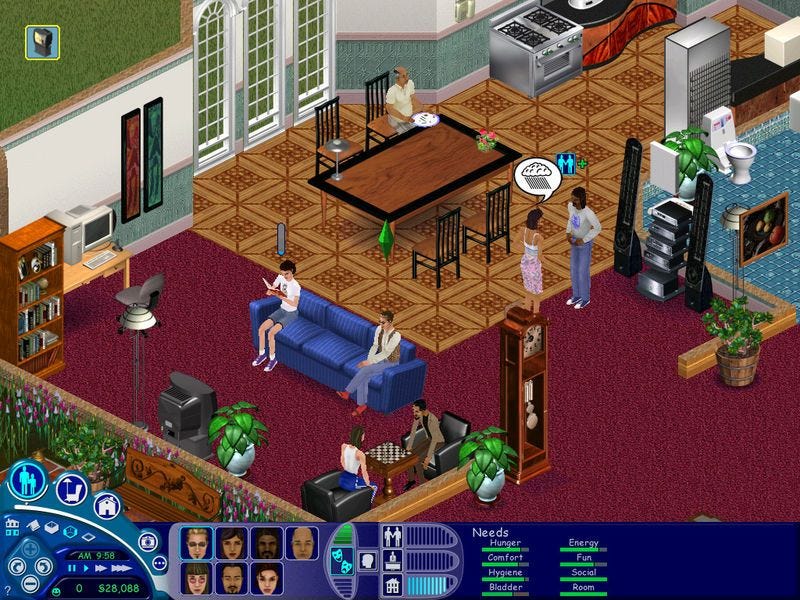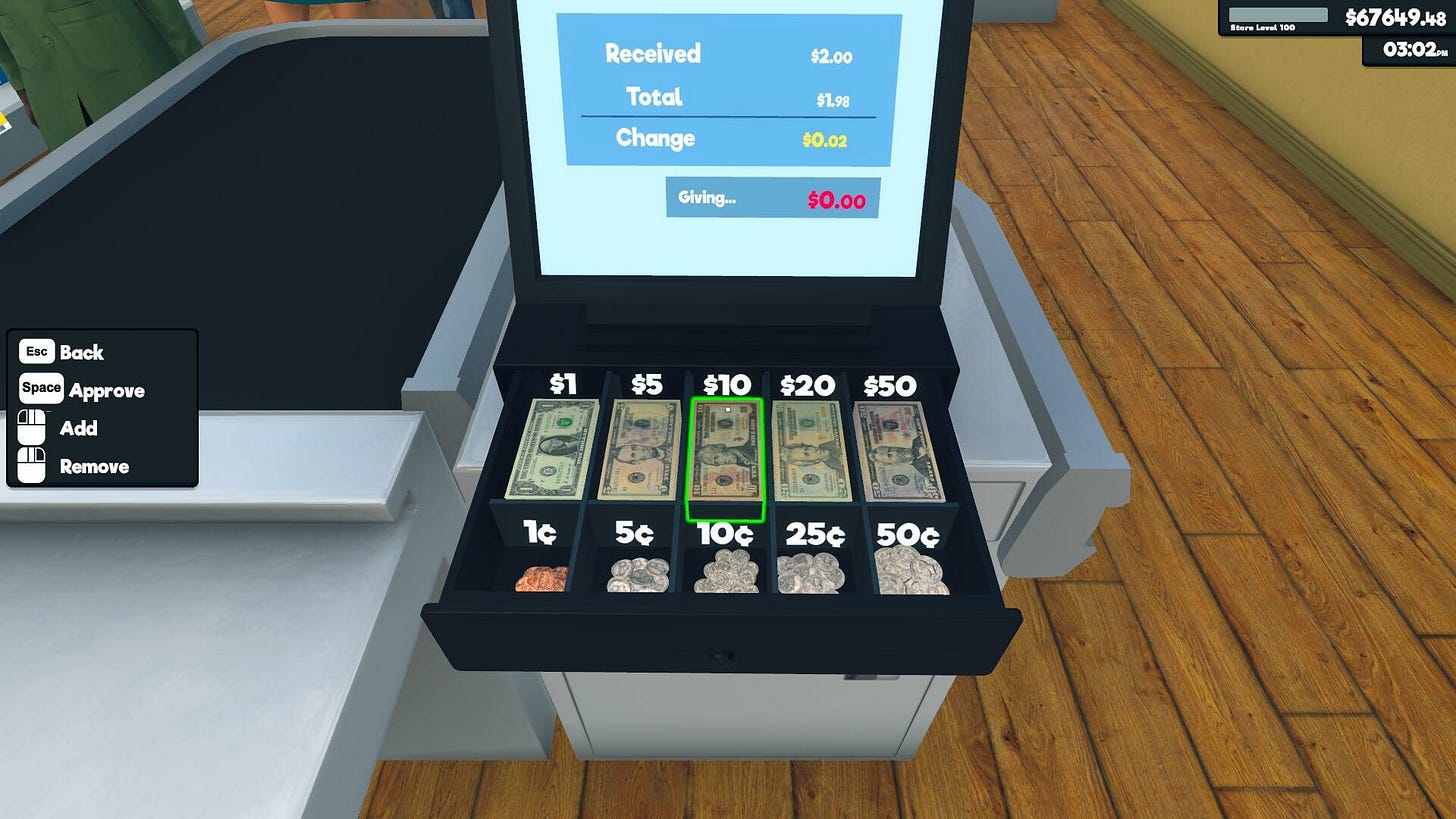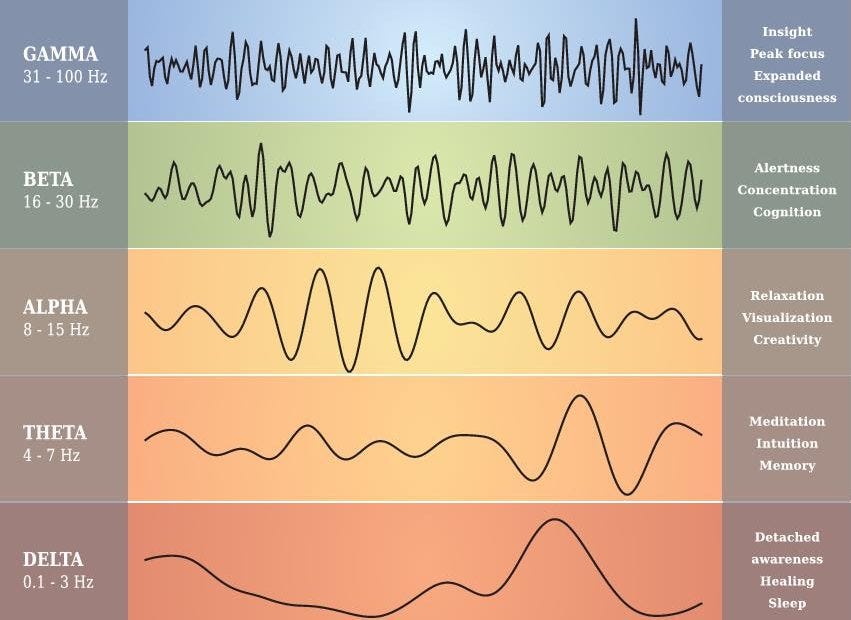Zen, supermarkets and the art of simulator games
Why are more people interested in playing a game about managing a supermarket than one about leading a team of supervillains? And what does this preference reveal about our world?
First, let's take a glance at the SteamCharts statistics for these two games.
(If you're not familiar, that portal displays the number of concurrent players in a game, serving as a reliable indicator of its popularity.)
Let’s guess who would win: the multimillion-budget game about killing DC superheroes…
…or a small game about running a supermarket?
You can see that the result is striking: Supermarket Simulator is ~3.6 times more popular!
Of course, this comparison is not entirely fair – Supermarket Simulator has become a viral hit, and many similar simulation games, both in terms of topic and quality, aren’t even close to its success. Suicide Squad: Kill the Justice League, on the other hand, is an example of a big-budget production missing the expectations and needs of the targeted audience.
But still – isn’t it puzzling that the game about such an ordinary job is FAR MORE popular than a big-budget superhero game? Why is that?
Simulation games for a long time used to be associated with rather inaccessible experiences. They provided a way to operate complicated vehicles like planes, submarines, or trains. It was nearly impossible to play them without specialistic knowledge or, at least, careful reading of a manual.

There was one exception, though. The Sims. This series was a kind of genre by itself, but could also be described as a “life simulation”. Contrary to other simulators, The Sims were easy to play, even by people who don’t usually play games. And it worked – the series has never had a lot of respect from hardcore gamers, but for many, it is a cult classic and the game of their childhood.
The Sims series proved that simulating more ordinary life can be fun, too. But in some way, it was a power fantasy as most of the games – The Sims offers a virtual version of “dream-life” fantasy, a sort of digital “doll house”.
Let’s go back to the present times when publishers and retailers no longer dictate what game is worth doing. When the only barrier to releasing the game is a $100 fee for Steam, even very niche themes might be profitable enough. And creators of simulators understand that very well. They earned their success not only through such evergreen themes like trucks (Euro Truck Simulator) or farming (Farming Simulator), but also through more surprising topics like cleaning stuff (PowerWash Simulator), mowing grass (Lawn Mowing Simulator), renovating houses (House Flipper) or running a gas station (Gas Station Simulator).
Those games are often rough around the edges as their budget is rather tight – to make a profit from a niche is a great strategy as long you can make money even from a relatively small amount of purchases. Especially, that making games faster and releasing them often, increases the chances of having an idea that will catch on and become a hit, even outside of its niche. Like Supermarket Simulator.
There is more than one reason for a success like that. We could talk comedy potential in such games which makes them perfect for streamers or YouTubers. We could talk about low entry-level making them accessible even for casual players.
There is a degree of luck too.
But I have a feeling that there is something else about them.
Simulation games give something a lot of us are missing in the modern world. They are mundane and down-to-earth. Goals are straightforward and the progress is measurable. The work is usually easy to understand and somehow relatable.
Sounds simple? But maybe that is enough. Such a fantasy of a simple life starts being attractive in our modern world. Every device, app, and platform tries to simulate us. Moments of boredom are very rare. So, spending time cleaning stuff with a pressure washer or putting products on market shelves might become a refreshing, peaceful experience.
We need boredom and peace for the health of our minds. Depending on what we’re doing, our neurons fire in different patterns called brainwaves. A lot of activities, maybe even more than ever, require us to concentrate causing Beta brainwaves. But to truly relax our mind needs Alpha brainwaves. Doing repeatable, monotonous activities allows us to wander with thoughts. This is not only relaxing but beneficial to our creativity and well-being.
Can simulation games help us achieve such a state? Possibly, but it requires scientific research to truly prove it.
Are such games the best way to relax? I don’t think so, video games in general aren’t the best form of relaxation.
But maybe the popularity of such games comes from this unfulfilled need for calm, monotonous activity that our brains lack.
To be honest, I’m not a fan of simulation games, personally. However, I believe that it’s beneficial for all creators to understand why they are popular and what needs they address.
You don’t necessarily need to make Delivery Simulator 2024, but you can use that activity to evoke a certain feel. Even, if your game is set in a strange, post-apocalyptic world as Hideo Kojima and his team created in Death Stranding.
Maybe repairing cars doesn’t sound exciting enough for you when speaking about Car Mechanic Simulator game, but what if this car is your only way to survive in a world full of dangerous anomalies? Pacific Drive mixes elements of simulation and survival games in really clever way.
If tearing down walls to renovate a house in House Flipper is not appealing, maybe cutting spaceships to pieces will be a better fit. Hardspace: Shipbreaker got you covered with a challenging gameplay, which not only requires patience during disassembling spaceships (some elements might explode), but also really good spacial orientation (as you move in the void, in all 3 dimensions).And as a bonus, you get a narration that is a funny satire of radical capitalism.
Whatever you prefer, just keep in mind what type of need, your game addresses. Why is it worth playing and what does it give to players? And then, it won’t matter if you’re doing a game about superheroes or supermarkets.













